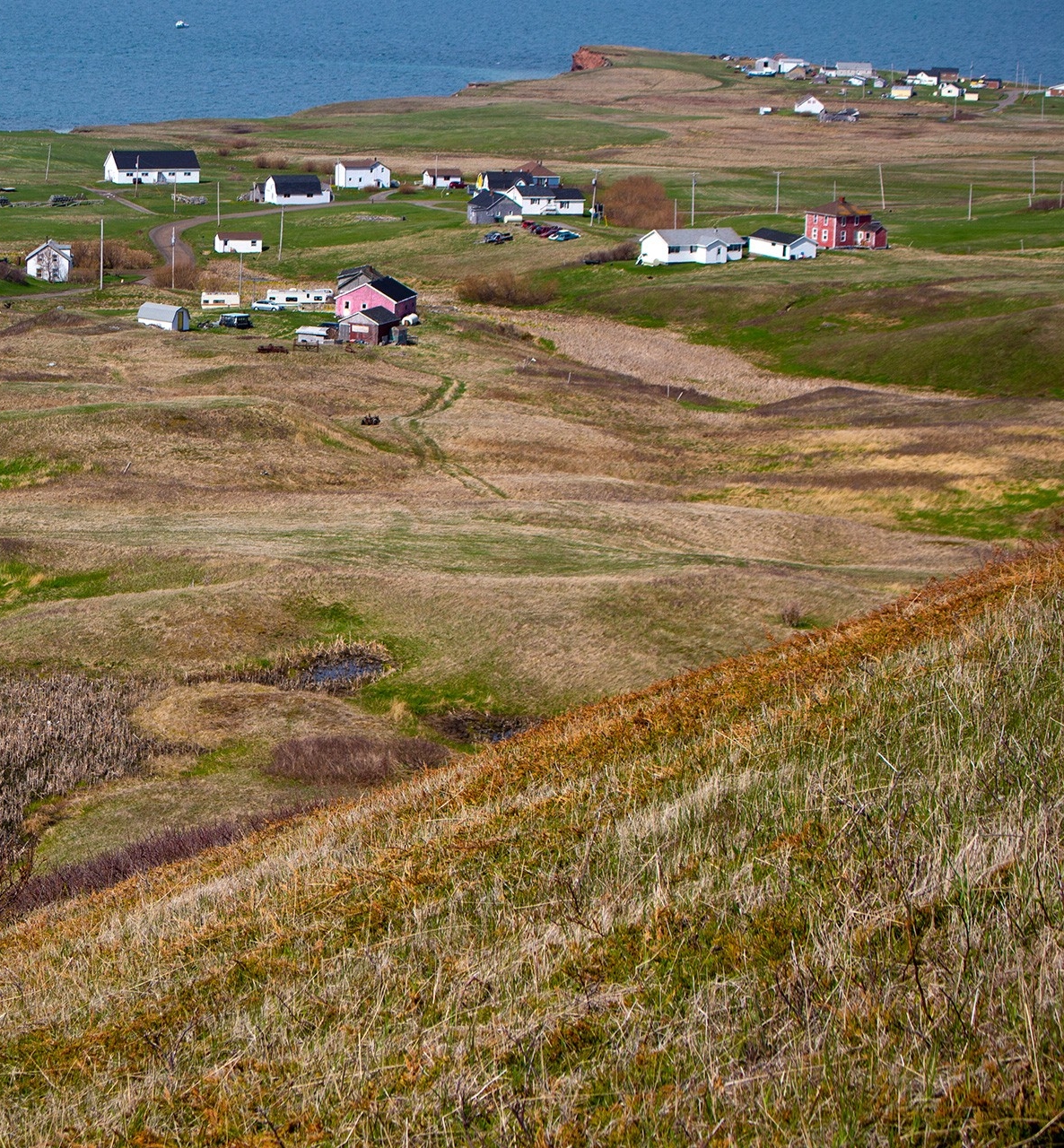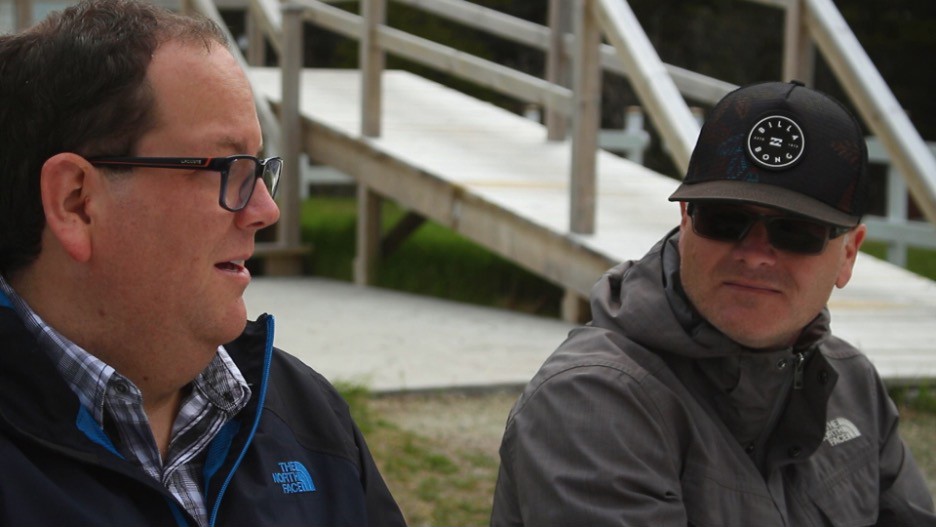Memories of Entry Island
A Film Project
Entry Island is an astonishingly beautiful place, but there is more than beauty on Entry Island. My goal with this project: putting people, faces, voices into the picture.
About the Film
Entry Island is a small (2km x 3km) island in the Gulf of St. Lawrence. It is one of the Magdalen Islands, part of the province of Quebec.
Entry Island is now permanent home to only around 60 year-round residents, many of whom are the English-speaking descendants of 19th-Century shipwrecked Scottish sailors.
Memories of Entry Island has six chapters of various lengths, complete in themselves. Lewis’s approach to the project was to try to be with, not simply look at, the people who agreed to be filmed. The documentary is composed largely of interviews, starting with open-ended questions, minimal camerawork, and focusing on faces. There were guiding questions, but the producers let the interviews go to where they wanted to go. The goal was to make a film about faces and stories that deserve to be shared before they disappear, presented honestly and lovingly, with minimal interference from those behind the camera.
These are stories of ordinary people in an extraordinary environment: a community with a long history and a very challenging future, facing the erosion of both their community vitality and the land itself.

Chapter 1
Stories are nice, but I hope they get a chance to make their own…
Jon Patton and Jarrett Quinn grew up on Entry, but now live now off-island. Jon’s family has been there since the shipwreck of the Scottish vessel Andromach in 1835.
Jon and Jarrett give straight stories from a remarkable childhood. Driving the hills and cliffs in ATVs without lights. Building snow forts large enough for 15 people (quite like the film la Guerre des tuques, or The Dog Who Stopped the War, 1985). Entry was, as they said, “A huge playground”. Leaving the island to continue their schooling - as all the Entry children had to do after 8th grade - was nothing less than a wonderful adventure.

Chapter 2
Big changes coming…
Candice Atkins is a lay reader for the Island (the preacher only comes every few months), and she is at center of the church community. She is among the youngest residents now. Two of her three children, like most of children of Entry, never returned to live on the island when they finished school, and they are building their lives elsewhere. There is simply no work on the island other than seasonal lobster fishing.
But there is still a community of elderly people who call this place home, and she does her part to hold it together through the church and other projects such as a community garden she launched, and the development of the new museum.
Chapter 3
What’s going to happen?
Pauline Boudreau is at the centre of the action: storekeeper, postmistress, and when health issues arise, translator for island neighbours who don’t speak French.
“What’s going to happen…what do they know that we don’t know?” she asks, referring to off-islanders who are now buying vacant properties as summer homes…
Hoping for a future she knows is more than unlikely, expecting dramatic change and loss. Perhaps the most poignant of the interviews.
Chapter 4
There’s hope for us.
The interview with Thelma Feltmate was shot in the Entry Island school. At its peak the school had about 80 children. It never offered instruction beyond 8th grade. In the early days that may have been enough, but since World War II, children have had to move off-island to finish school - New Brunswick, PEI, Cape Breton, Alberta - and very few of them in recent times have come back to live their lives.
The current island community, established largely by shipwrecked Scottish immigrants in the 1830s, has been dying slowly since the war, when it was at its most vibrant as the breadbasket of the Magdalens. It might as well have been declared dead officially, at least in terms of a sustained year-round community, in 2015, when the school closed for good. Thelma tries to end her resigned interview in the schoolhouse on a note of optimism. “There’s hope for us,” she says, but it is not all clear what that might be.
Chapter 5
They worked hard but they had a good life.
Vera Welsh is one of the oldest and happiest of the current residents we interviewed. Probably the least educated (she refused to stay away to finish school), she was in fact the most philosophical. She talks about the “good old days,” before electricity, sledding the ice bridge to the mainland, (which hasn’t returned in decades), the knitting parties, women’s work, but also the dread of watching your children leave the island permanently to go to school.
While Jon Patton, through the eyes of a child, remembered this time of departure as wonderful, as a great adventure, Vera Welsh, who has lived on the Island all her life and worked at the school for many years, remembered this as simply heart-wrenching, year after year.
Chapter 6
Love it, just love it... Love it everyday, yup!
No one is more aware of the effects of climate change on this environment than lobsterman Lyndon Patton. No one is more aware that the fisheries can collapse in a moment. From one year to the next, Lyndon sees the world changing around him. But no one interviewed was more joyous, enthusiastic and expressive in his actions and words about the joys of life on Entry Island, surrounded by the sea, even now.
It’s a good way to end this series of films, with a glimpse of a magic still there and still strong in everyday life.
Credits
Memories of Entry Island was produced through the Quebec English-Speaking Communities Research Network (QUESCREN) under the leadership of its co-director Brian Lewis, in collaboration with QUESCREN staff Lorraine O’Donnell and Patrick Donovan, along with the Council for Anglophone Magdalen Islanders (CAMI).
All photos: Patrick Donovan




